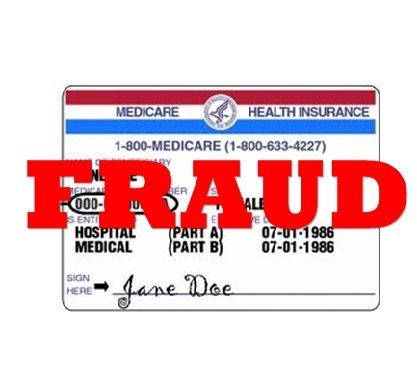MIAMI
 The owner of more than 30 Miami-area skilled nursing and assisted living facilities, a hospital administrator and a physician’s assistant were charged with conspiracy, obstruction, money laundering and health care fraud in connection with a $1 billion scheme involving numerous Miami-based health care providers, federal officials announced Friday.
The owner of more than 30 Miami-area skilled nursing and assisted living facilities, a hospital administrator and a physician’s assistant were charged with conspiracy, obstruction, money laundering and health care fraud in connection with a $1 billion scheme involving numerous Miami-based health care providers, federal officials announced Friday.
According to the indictment, Esformes operated a network of over 30 skilled nursing homes and assisted living facilities — the Esformes Network — which gave him access to thousands of Medicare and Medicaid beneficiaries.
“This is the largest single criminal health care fraud case ever brought against individuals by the Department of Justice, and this is further evidence of how successful data-driven law enforcement has been as a tool in the ongoing fight against health care fraud,” said Assistant Attorney General Leslie R. Caldwell.
“Esformes is alleged to have been at the top of a complex and profitable health care fraud scheme that resulted in staggering losses – in excess of $1 billion,” said FBI Special Agent in Charge in Miami George L. Piro. “The investigators who unraveled this intricate scam are to be commended for their diligence and commitment to root out fraud within our health care system.”
Philip Esformes, 47, Odette Barcha, 49, and Arnaldo Carmouze, 56, all of Miami-Dade County, Florida, were each charged in an indictment unsealed Friday.
“Medicare fraud has infected every facet of our health care system,” said U.S. Attorney Wilfredo A. Ferrer. “As a result of our unrelenting efforts to combat these pernicious schemes, the Criminal Division, the U.S. Attorney’s Office and our law enforcement partners continue to identify and prosecute the criminals who, driven by greed, steal from a program meant for our aged and infirmed to increase their personal wealth.”
One-Billion-Dollar Healthcare-Fraud Graphic
Many of these Esformes beneficiaries did not qualify for skilled nursing home care or for placement in an assisted living facility.
However, Esformes and his co-conspirators nevertheless admitted them to Esformes Network facilities where the beneficiaries received medically unnecessary services that were billed to Medicare and Medicaid.
Esformes and his co-conspirators are also alleged to have further enriched themselves by receiving kickbacks in order to steer these beneficiaries to other health care providers – including community mental health centers and home health care providers – who also performed medically unnecessary treatments that were billed to Medicare and Medicaid.
In order to hide the kickbacks from law enforcement, these kickbacks were often paid in cash, or were disguised as payments to charitable donations, payments for services and sham lease payments, court documents allege.
Esformes and Barcha were also charged with obstructing justice.
According to the indictment, following the 2014 arrest of co-conspirators Guillermo and Gabriel Delgado, Esformes attempted to fund Guillermo Delgado’s flight from the United States to avoid trial in Miami.
The indictment further alleges that Barcha created sham medical director contracts following receipt of a grand jury subpoena in June 20, 2016, in order to conceal and disguise the payment of kickbacks she made in exchange for patient referrals for admission to Esformes Network facilities and another Miami-area hospital.
According to court documents, in 2006, Esformes paid $15.4 million to resolve civil federal health care fraud claims for essentially identical conduct, namely unnecessarily admitting patients from his assisted living facilities into a Miami-area hospital.
However, Esformes and his co-conspirators allegedly continued this criminal activity-adapting their scheme to prevent detection and continue their fraud after the civil settlement.
The indictment alleges that the co-conspirators accomplished this by employing sophisticated money laundering techniques in order to hide the scheme and Esformes’ identify from investigators.
Federal investigators ultimately employed advanced data analysis and forensic accounting techniques and were able to identify the full scope of the fraud scheme, according to officials.
The charges and allegations contained in an indictment are merely accusations. The defendants are presumed innocent unless and until proven guilty beyond a reasonable doubt in a court of law.

